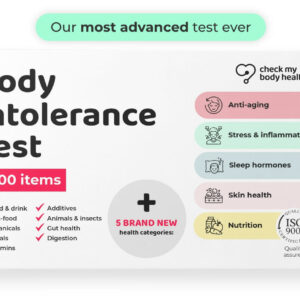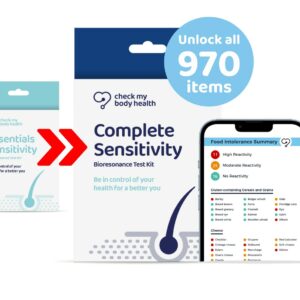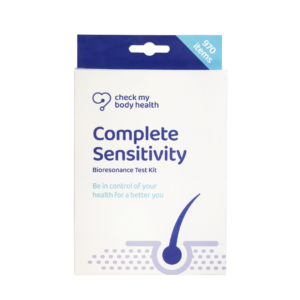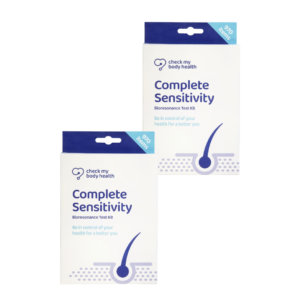What Foods Have B6? | Foods High In B6

Medically reviewed by Sian Baker, Dip ION mBANT mCNHC
on March 30, 2023. To give you technically accurate, evidence-based information, content published on the Check My Body Health blog is reviewed by credentialed professionals with expertise in medical and bioscience fields.

Vitamin B6, also known as pyridoxine, has several important functions in the body, including:
Protein metabolism: Vitamin B6 helps the body make and break down proteins.
Red blood cell formation: Vitamin B6 plays a role in the production of haemoglobin, a protein that carries oxygen in red blood cells.
Nervous system function: Vitamin B6 is involved in the production of neurotransmitters, chemicals that transmit signals in the brain and nervous system.
Immune system function: Vitamin B6 helps the body produce cytokines, which are involved in the immune response.
Hormone regulation: Vitamin B6 helps the body produce hormones, including serotonin, which regulates mood, and melatonin, which regulates sleep.
Eye health: Vitamin B6 helps the body produce melatonin, which may be important for eye health and the prevention of certain types of cataracts.
Overall, vitamin B6 is an important nutrient that is necessary for a variety of functions in the body. Adequate intake of vitamin B6 can help support overall health and wellness.
How much B6 should you have?
The recommended daily allowances (RDAs) for vitamin B6 vary depending on age and gender. Here are the RDAs for vitamin B6 in micrograms (mcg) per day:
- Infants 0-6 months: 0.1 mcg
- Infants 7-12 months: 0.3 mcg
- Children 1-3 years: 0.5 mcg
- Children 4-8 years: 0.6 mcg
- Children 9-13 years: 1.0 mcg
- Adolescents 14-18 years: 1.2 mcg
- Adults (male): 1.3 mcg
- Adults (female): 1.2 mcg
- Pregnant women: 1.9 mcg
- Breastfeeding women: 2.0 mcg
It’s important to note that these are the minimum amounts needed to prevent deficiency. Higher levels may be required for some individuals, especially for those who have certain health conditions or are taking certain medications. It is best to consult with a healthcare provider to determine the right amount of vitamin B6 for your individual needs.
What foods have vitamin B6?
Vitamin B6 can be found in a variety of foods, including:
Meat and poultry: Chicken, turkey, beef, and pork are all good sources of vitamin B6.
Fish: Tuna, salmon, halibut, and cod are excellent sources of vitamin B6.
Dairy products: Milk, yogurt, and cheese are good sources of vitamin B6.
Legumes: Chickpeas, lentils, kidney beans, and black beans are good sources of vitamin B6.
Nuts and seeds: Pistachios, sunflower seeds, and hazelnuts are all good sources of vitamin B6.
Potatoes: Baked or boiled potatoes are good sources of vitamin B6.
Fruits: Bananas, prunes, and avocados are good sources of vitamin B6.
Whole grains: Brown rice, whole wheat, and oatmeal are good sources of vitamin B6.
It’s important to eat a varied diet to ensure adequate intake of vitamin B6 and other essential nutrients. Aim to include a variety of foods from each food group to ensure you’re getting the nutrients you need.
Should I take vitamin B6 supplements?
The need for vitamin B6 supplements depends on several factors, including your diet and overall health status. Most people can get enough vitamin B6 from their diet by eating a variety of foods that are rich in this nutrient.
However, there may be some circumstances where taking a vitamin B6 supplement may be necessary. For example, if you have a medical condition that affects your ability to absorb vitamins from food, if you are on a restricted diet, or if you have an increased need for vitamin B6, such as during pregnancy or lactation, you may need a supplement.
It’s also important to note that taking high doses of vitamin B6 supplements can have toxic effects, and should only be taken under the guidance of a healthcare professional.
In general, it’s best to try to get the vitamins and nutrients you need from your diet, and to only take supplements if recommended by a healthcare provider. If you are considering taking a vitamin B6 supplement, it’s important to talk to your doctor to determine the right amount for your individual needs.
References
- Vitamin B6: Fact Sheet for Health Professionals. National Institutes of Health. Accessed May 17, 2022. (https://ods.od.nih.gov/factsheets/VitaminB6-HealthProfessional/)
- FoodData Central Search Results: Mollusks, whelk, unspecified, cooked, moist heat. United States Department of Agriculture. Accessed May 17, 2022. (https://fdc.nal.usda.gov/fdc-app.html#/food-details/171984/nutrients)
- FoodData Central Search Results: Tempeh. United States Department of Agriculture. Accessed May 17, 2022. (https://fdc.nal.usda.gov/fdc-app.html#/food-details/174272/nutrients)







